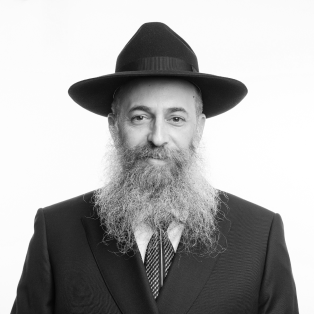Recently, the Beth Din launched a new initiative called “Beit Hora’ah”. Simply put, it is an offering whereby litigants can opt to have their dispute heard by one of the Dayanim, rather than the full bench of three. There would seem to be certain advantages to such a system. Firstly, it is easier to co-ordinate the availability of one Dayan rather than three. Secondly, the cost of having a matter heard by one Dayan would be less than were it to be heard by a full panel of Dayanim. This article seeks to investigate the Halachic grounds allowing for the provision of such a service.
Note: The topic is a robust one, and beyond the scope of this article to cover in its entirety. However, we will hopefully provide some insight into the matters at hand.
“Monetary matters are adjudicated by three judges”[1]. With these words, the Tractate of Sanhedrin advances the guidelines and rules for the composition of a Beth Din, depending on the matter being addressed.
Though the source for this law requiring a composition of three judges is debated later in the Gemora, the basic premise is uncontested. It seems relatively easy to give a logical reason why this would be the case. Three judges allow for differing opinions which can then be discussed and elucidated. Furthermore, having an odd number of judges hearing a matter, ensures that you will always have a majority opinion, which, in the writing of the ruling, becomes a unanimous decision based on the Torah principle dictating that we follow the majority opinion.
Indeed, the Shulchan Aruch[2] codifies this law as follows: The judgement of a Beth Din comprised of fewer than three judges is invalid, even if it is the correct ruling. The exception to this would be either if the parties agreed in advance to abide by the ruling of such a Beth Din. Alternatively, if the single judge hearing the matter was a Mumche Lerabbim (a person with supreme knowledge of Halacha and extensive experience), his ruling would be binding regardless of whether the parties agreed to submit to his authority as a single judge or not.
The Rama notes, that today no one has that status of a Mumche Lerabbim, and thus no individual judge can impose his authority on the litigants.
This principle, which precludes a single judge hearing a matter, seems to be reiterated in Pirkei Avot[3] where it states: Do not judge a matter alone (by oneself), for none may judge alone except One (Hashem). Pirkei Avot is known to be a guide to living a pious and noble life, milli dechassidusa, not merely in strict compliance with the law. Accordingly, the notion of a single judge hearing a case seems excluded as a matter of piety, not only from a legal standpoint.
Given the above, how can one offer a single judge to hear a matter?
Precedent
The Talmud Yerushalmi[4] cites an instance where Rabbi Abahu was sitting alone as a judge (and hearing cases). His students asked: Did you not teach us that one should not judge alone? Rabbi Abahu responded: “I simply sit here, and the litigants come to me (of their own volition). This is tantamount to them having accepted upon themselves my authority (kiblu alayhu). When is it said that one may not sit alone in Judgement? When the parties did not agree to this. But if the parties agreed, then one may sit alone in judgement.
This comports with the position of the Bartenura, in his commentary in Pirkei Avot[5], where he states that even though a Mumche Lerabbim is legally allowed to impose his authority on the parties, it would not be pious conduct, midarkei chassidus, to do so. However, the Bartenura agrees that were the parties to agree to submit to his authority, it would not be a contravention of darkei chassidus.
It should be noted, that while one may argue that the Bartenura is only expressing this leniency in regard to a Mumche Lerabbim, the Magen Avot in his commentary on this Mishna[6], is broader in his interpretation. He states: “From here we derived permission for ourselves to judge a case alone, without even contravening darkei chassidus”. This despite not necessarily fitting the criteria of a Mumche Lerabbim.
Not for everyone
Notwithstanding the above, the Shulchan Aruch states[7]: Even though one who is Mumche Lerabbin may sit in judgment alone, it is a Mitzvat Chachamim (Rabbinic instruction) that he co-opt others to sit with him (and create a compilation of three[8]).
The scope of this “Mitzvat Chachamim” that would preclude a single Dayan hearing a case, is a matter of contention. The Shach[9] is of the opinion that only a Mumche, an expert, would be eligible to serve as a single judge. Since the existence of this status of Dayan in today’s day and age is unclear, the Shach suggests that one should only sit as a single Dayan if they stipulate in advance that they are unable to provide absolute Jewish legal determination, Din Torah (and the parties agree to abide by the ruling as devised to the best of the ability of the Dayan). Alternatively, if the matter is a commonplace issue that is regularly adjudicated as a matter of course, the individual Dayan would satisfy the criteria of being a Mumche, an expert, for such matters, and could sit as a single judge, with the consent of the parties, and not be in violation of Mitzvat Chachamim. It should be noted however, that the Ketzos Hachoshen[10] takes a more stringent approach. He states: “It appears to me that one should not be lenient in this at all”. He then cites a commonplace legal event of someone who admits partial liability, the law in such a case is simple and well known[11]. Nonetheless, the law is that even a Mumche Lerabbim may not hear such a case. Therefore, even a Mumche Lerabbim should not adjudicate even a simple matter without two other Dayanim.
A viable opinion
Despite the Shach’s reservations (and other likeminded authorities), there is a significant body of opinion that allows for the parties to agree to submit to the adjudication of a single “regular” Dayan.
Notably, the Vilna Gaon in his commentary on the Shulchan Aruch opines[12] that if both parties agree, even a regular person may sit alone and judge their case, even in the first instance, lechatchila.
Indeed the Rashba[13] likewise is of the opinion that once the parties have agreed to have the matter heard by a single Dayan, they can no longer reject his authority, even before the final ruling is handed down.
A slightly nuanced perspective was provided by Rabbi Yonasan Eibeshitz in his commentary on the Shulchan Aruch[14], in which he states that in his community, it was communally agreed that matters up until a certain monetary value would be adjudicated by a single sitting Dayan. In part to avoid ballooning costs of Dayanim on matters with a relatively low financial value. What is clear though, is that matters that are relatively easy cases may be adjudicated by a single sitting Dayan.
In reconciling the practice of one Dayan hearing a case, the Responsa Sh’erit Yosef[15] explains that the concern cited in the Mishna in Pirkei Avot was simply speaking about a Dayan imposing his authority on unwilling parties. This, say our Sages, is improper. However, if the parties themselves agree to submit to the ruling of a single Dayan, they may do so and the Dayan may likewise accept the case without falling foul of the Mishna or the Mitzvat Chachamim mentioned above.
One final comment. The availability of three competent Dayanim to hear civil litigation, is a gift of the modern Jewish communal world. In days gone by, where Jews lived in small towns and shtetlach, the only competent halachic authority was the town Rabbi. How then would these communities ever have been able to have civil monetary disputes decided in accordance with Torah law, if one always required three Dayanim to hear a case? This caused the Aruch Hashulchan[16] to comment on the fact that the normative practice was not to require a full bench of three Dayanim to hear the cases. He notes that since this Rabbi was what was available in town, the parties, ipso facto, accepted that he will rule to the best of his understanding and ability, which is tantamount to accepting his rulings, regardless of the Halachic integrity of the outcome. It is therefore evident from his comment, that as long as the parties mutually agree to submit to the ruling of a single Dayan, the ruling has the complete validity and imprimatur of Torah law and is binding on all parties.
Conclusion
As we have seen, like everything in Halacha, there are various opinions. However, there is a significant body of opinion, and an even more significant body of “practice” throughout the ages, which allows the parties to agree to have their case heard by a single Dayan. It has also been shown that there is no requirement for a Dayan to refuse to hear a case alone, so long as the parties have bound themselves to his ruling. Accordingly, the Beth Din is able to offer the services of a single Dayan to hear cases and assist in expediting matters to the best of their ability.
Notes
[1] Sanhedrin 2a
[2] Choshen Mishpat 3:2
[3] Chapter 4 Mishna 8
[4] Sanhedrin 1:1
[5] Pirkei Avot 4:8.
[6] Ibid
[7] Choshen Mishpat 3:3
[8] See S’me 3:10
[9] C.M. 3:10
[10] C.M. 3:4
[11] Ketzos Hachoshen 3:2
[12] Ibid footnote 20
[13] Shut HaRashba 1:1126
[14] Urim 3:8
[15] Responsa 17
[16] C.M. 3:6


